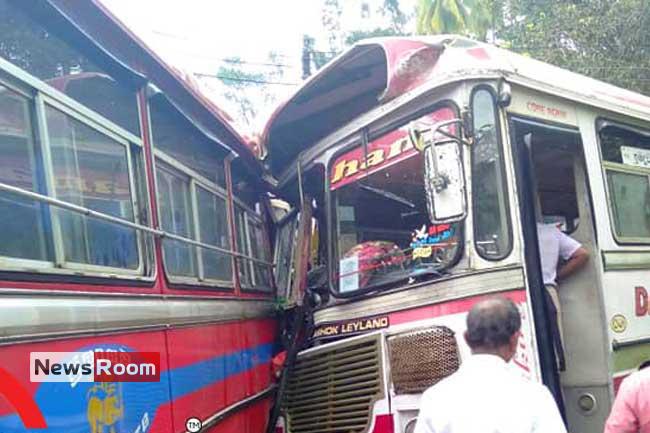By Rathindra Kuruwita
Hospitals in Sri Lanka’s urban centres, too, will struggle to deliver healthcare as a large number of healthcare workers, from doctors to nurses, are leaving the country, says Education Secretary of the Frontline Socialist Party (FSP) Pubudu Jayagoda.
Addressing the media, in Colombo, Jagoda said the dramatic increase in the PAYE tax, the drug and medical equipment shortages at hospitals, the general instability of the country, as well as the belief that there is no future in Sri Lanka, had contributed to the situation. “During the past few weeks, we have heard of disruptions to major hospitals in the country’s periphery. Soon, even the hospitals in our urban centres will be affected,” he said.
Jayagoda said that many hospitals ask patients, who have to undergo surgery, to purchase certain requirements from the private sector. These items, in general, cost about 15,000 to 20,000 rupees, he added.
“In the case of the Maharagama Apeksha Cancer Hospital, a lot of people are just expecting death because of medical shortages. Even at this juncture, the Minister of Health, Keheliya Rambukwella, and senior health officials, only care about making money. People are dying but they don’t care,” he alleged.
Jayagoda said that Sri Lanka imported an eyedrop called Prednisolone from an Indian company in Gujarat. It has been found that the eyedrop is causing allergies and side effects on many patients, he said.
“One patient has gone blind because of this eye drop. Now authorities have asked all hospitals not to use this drug. The letter has been sent to hospitals, on 02 May, but people started reporting complications from early April. It is obvious that there was no quality check when we started using this drug,” he said.
Jayagoda went on to say that Health Ministry laboratories had found that the eyedrop contained several germs. The laboratories had sent reports with proof that the drug is contaminated, on 10 April. However, until 02 May, the Health Ministry had not asked hospitals to stop using it, he said.
“Luckily, most doctors saw the side effects and stopped using the drug from the second week of April,” he said.
Sri Lankans are now facing three main issues with regards to medicine, Jayagoda said. One is the shortage of drugs and medical equipment.
“Second is that there are a lot of issues with the drugs available. There are many substandard drugs in the market and the government hospitals. The government tried to buy medicine from companies that are not registered with the NMRA. There were attempts to buy medicine from companies that were blacklisted by the NMRA. The third is the price of drugs,” he said.
The FSP Education Secretary added that despite the crisis, the Health Ministry is trying to embezzle money during medical purchases.
“The Ministry has called for a tender to purchase 2.5 million vials of Cefuroxime Sodium. This is a widely used antibiotic, and government hospitals need about 160,000 of these vials a month. All healthcare professional know that antibiotics must be of the highest quality because if a patient develops antibiotic resistance, he or she can even die. Six companies have applied for the above tender. The lowest bid was by a company that offered 19 cents U.S. dollars a vial. The second lowest bid was for 24 cents. But the tender is to be awarded to a company whose bid was 85 cents. We will spend 1.6 million U.S. dollars more if we buy from this company,” he said.
At a time when Sri Lanka is facing serious foreign exchange shortages, the Health Officials are draining our coffers, he said.
“Usually, a letter of credit is issued to the drug manufacturer. And it’s the drug manufacturer who is the bidder for the tender. There may be a local agent, but the bidder is the manufacturer. However, the company who bid 85 cents U.S dollars for the above-mentioned bid is not a drug manufacturer. This is a middleman who will buy from India and sell us the vials. So, this company will buy drugs from India for about 20 cents a vial and sell it to Sri Lanka keeping a margin of 65 cents U.S dollars. Who will take this cut? From what we know, this company is owned by a Sri Lankan,” he said.
